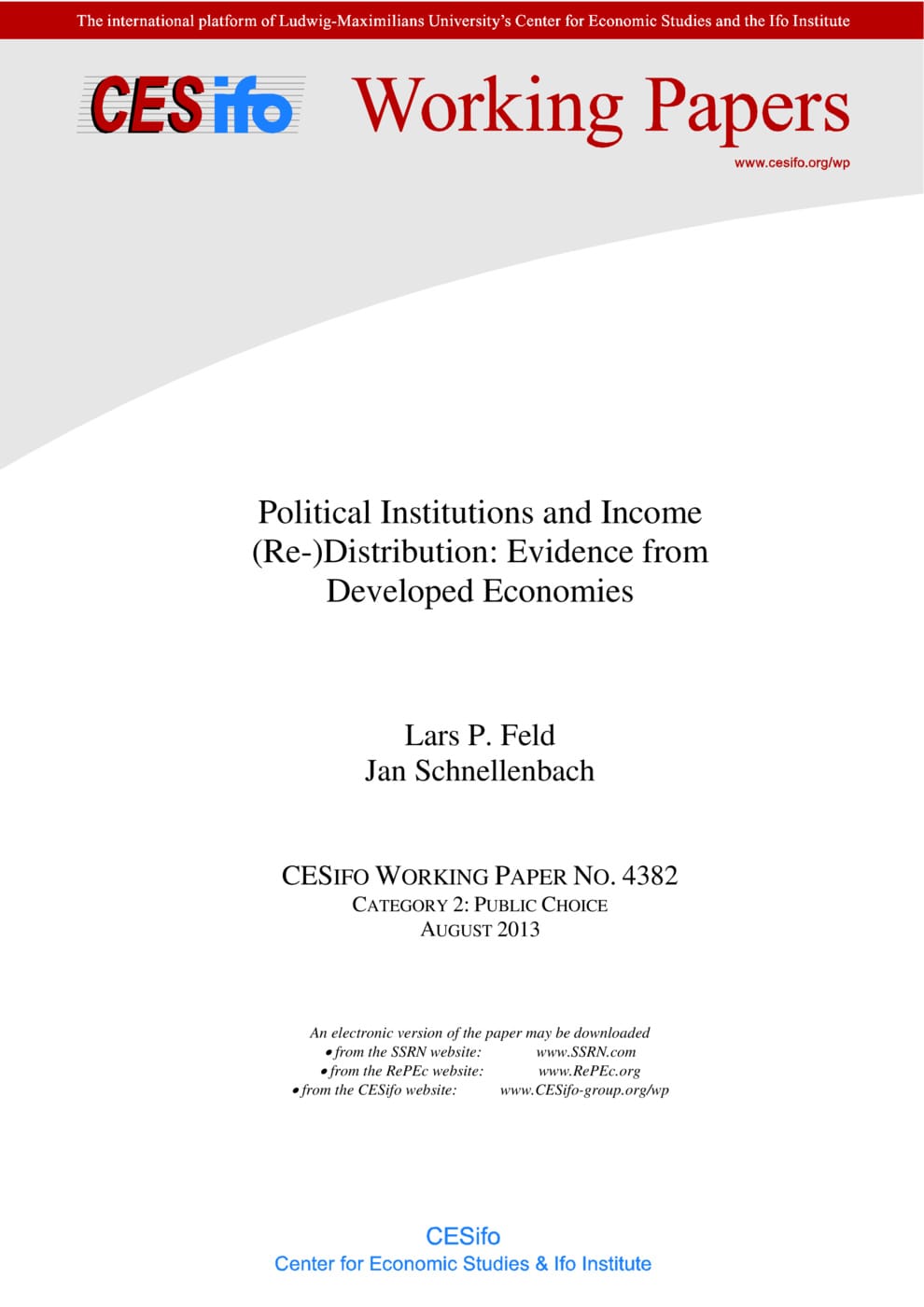Political Institutions and Income (Re-)Distribution: Evidence from Developed Economies
CESifo, Munich, 2013
CESifo Working Paper No. 4382

We discuss the effect of formal political institutions (electoral systems, fiscal decentralization, presidential and parliamentary regimes) on the extent and direction of income (re-) distribution. Empirical evidence is presented for a large sample of 70 economies and a panel of 13 OECD countries between 1981 and 1998. The evidence indicates that presidential regimes are associated with a less equal distribution of disposable incomes, while electoral systems have no significant effects. Fiscal competition is associated with less income redistribution and a less equal distribution of disposable incomes, but also with a more equal primary income distribution. Our evidence also is in line with earlier empirical contributions that find a positive relationship between trade openness and equality in primary and disposable incomes, as well as the overall redistributive effort.
Public Choice
Public Finance